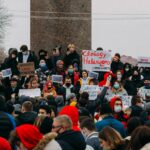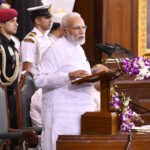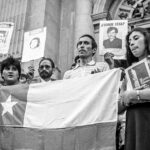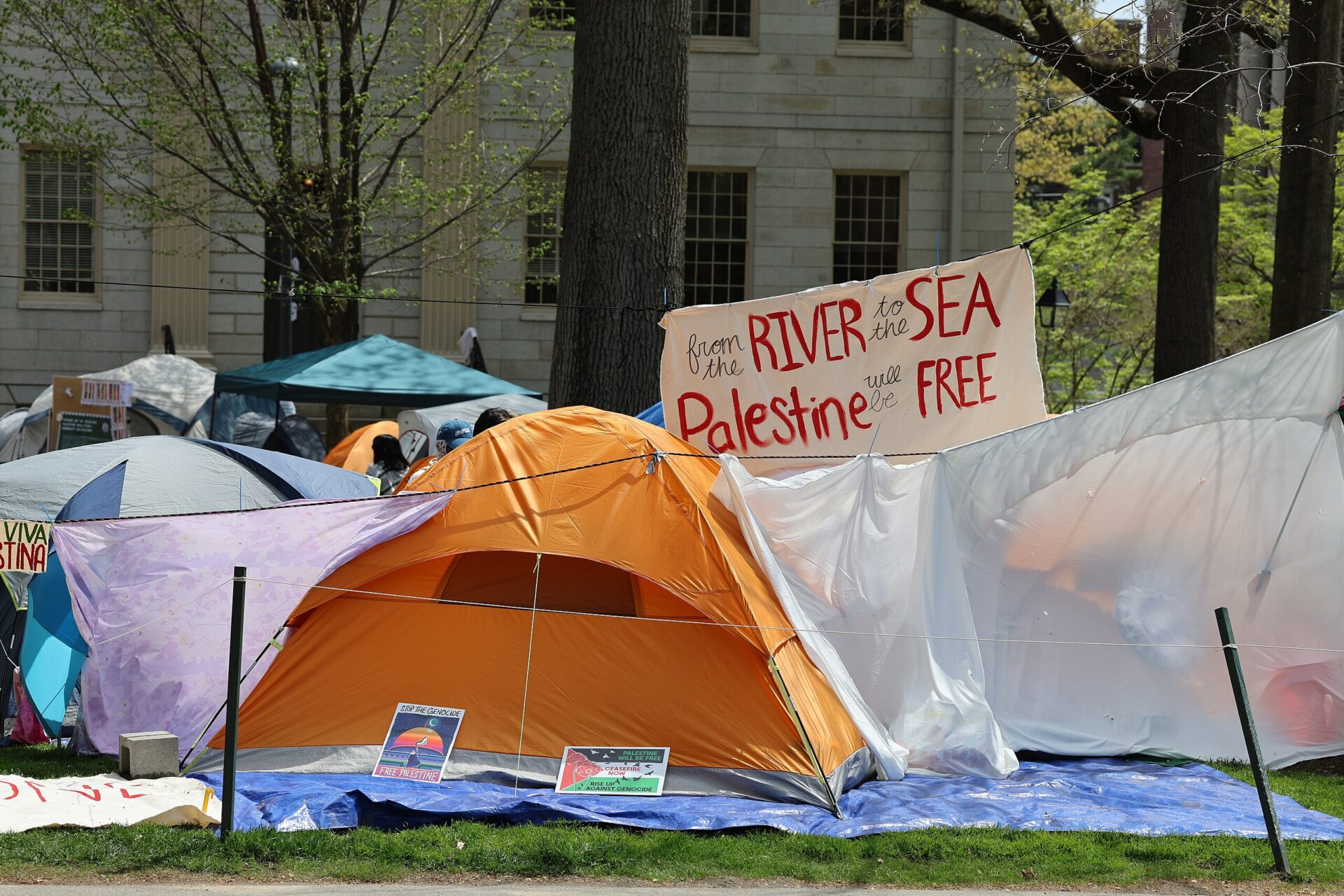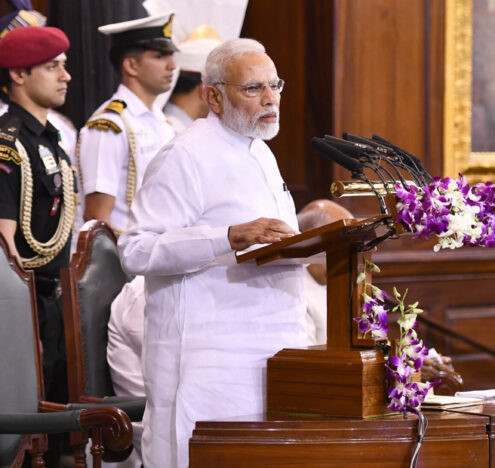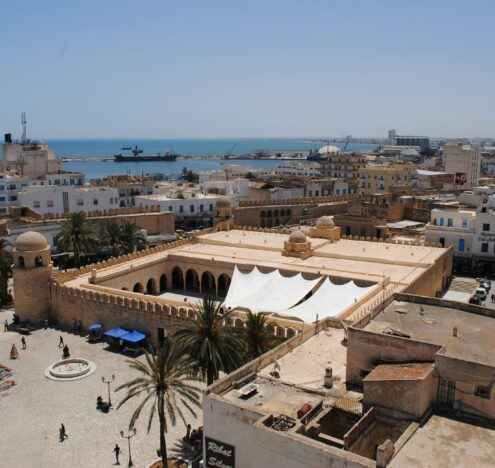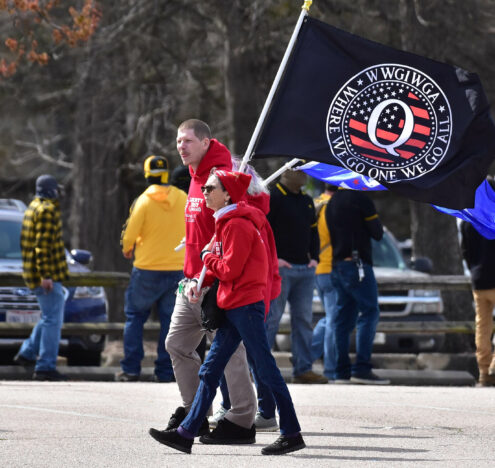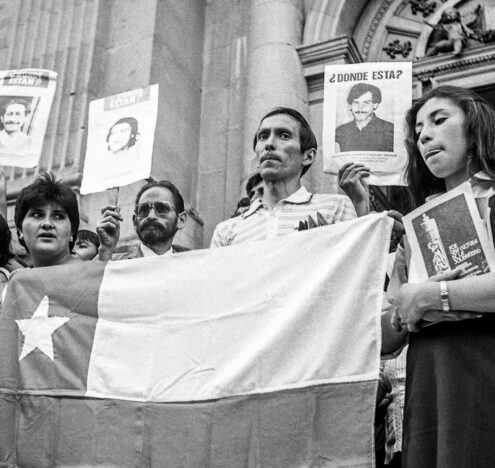As the saying goes, “A society grows great when old men plant trees whose shade they know they shall never sit in.” Unfortunately, we do not live in such a society. We live in a society where old men cut down the existing trees without second thought for the environmental consequences they will never face.
In the United States, we live in a society that is arming and funding the mass slaughter of Palestinians in Gaza, while our so-called leaders vilify American students who are appalled by the unending atrocities that have been live-streamed to their devices for months. Under the guise of “student safety,” campus protests have been violently suppressed and student activists have been smeared as supporters of “terror.”
As I watched these events unfold, I could not help but think of my own time as an undergraduate student in the early 2000s. My generation came of age during the Second Intifada, the attacks of 9/11, and the ensuing War on Terror. We were horrified by the injustices Palestinians faced, especially when we learned what they had endured for so many decades with the full support of the US — our government. We were horrified at the tragedy and loss of American lives on Sept. 11, 2001, then horrified to learn about the violence we had imposed on so many people across the world and the violence we would soon unleash.
Hope
I remembered the lack of concern from administrators about student safety when our Palestine events on campus were disrupted — one of our displays was even burned down in an arson attack — or the lack of action when adults would come to our events and our classes on Israel-Palestine to harass and intimidate students. When I saw a new generation of students create “Gaza solidarity encampments” to bring attention to the horror in Gaza, I felt hopeful to see their bravery. At the same time, I felt ashamed for how they were treated by the adults that they were meant to trust to prevent this humanitarian catastrophe.
My generation came of age during the Second Intifada, the attacks of 9/11, and the ensuing War on Terror.
After students at Columbia University organized a protest against US support for the war on Gaza and called for their university to divest from Israel, they were quickly confronted by police. While students were peacefully exercising their right to protest, university President Minouche Shafik moved swiftly to suspend students participating in the encampment, then authorize the New York Police Department to sweep the encampment and make arrests. Even NYPD Chief John Chell noted the peaceful nature of the student protests, stating, “To put this in perspective, the students that were arrested were peaceful, offered no resistance whatsoever, and were saying what they wanted to say in a peaceful manner.”
Resilience
The backlash that followed viral images and videos of the NYPD arresting nonviolent students at Columbia became a spark, as more solidarity encampments and protests spread across the country. More protests brought a greater show of force by authorities and, in turn, spurred university faculty and members of the community to show solidarity with students, protect their right to protest, and denounce the violence unleashed against them.
With every show of force and intimidation, more campuses set up their own encampments. With every encampment cleared and protest repressed, more students came back to support their peers and the calls to end support for Israel, as it carries out crimes against humanity.
As of this writing, Israel has killed some 35,000 Palestinians in Gaza, more than 14,000 of which were children. Nearly 80,000 have been injured and 8,000 are still missing. More than half of Gaza’s homes have been destroyed or damaged, along with schools, universities, and hospitals. A recent UN report says it could take up to 80 years to repair the damage that has already been done. And while the vast majority of the population in Gaza is displaced, Rafah — the last refuge for Palestinians in Gaza — is being attacked and there is anticipation and concern over a major Israeli incursion.
The campus protests have now spread to universities around the world and reached Palestinians in Gaza who have seen their hope in humanity renewed in the courage of these young students. They have also renewed hope for people like myself.
The Right Side of History
Hillary Clinton can condescend to these students — by questioning their knowledge or intelligence — but we know the truth because we have seen it with our own eyes. In reality, people like Hillary Clinton will disparage anyone who challenges the status quo, no matter their knowledge of history.
The student protestors of a previous generation have pursued graduate education and professional careers in their respective fields only to be told, still, that we do not understand the issues that we have studied and researched for years.
We must support our younger generation, our peers, and our fellow human beings across the world by continuing to stand up against this injustice. I want this young generation to know they are not alone and that they are on the right side of history. I want to be part of a generation that plants trees whose shade we will never sit in. I want justice for Palestinians who have suffered my government’s actions. Then, maybe, we can have a society that is great.




